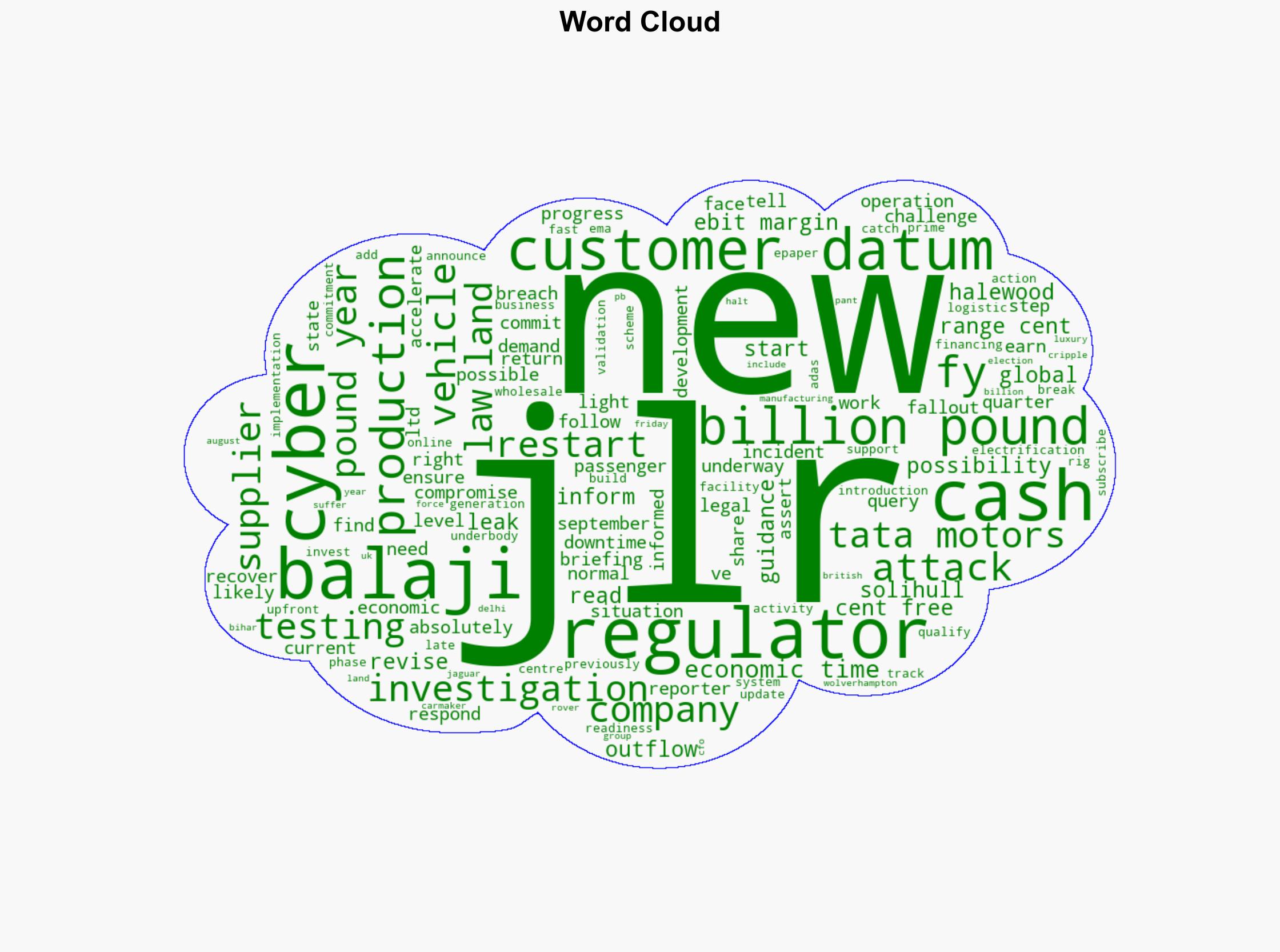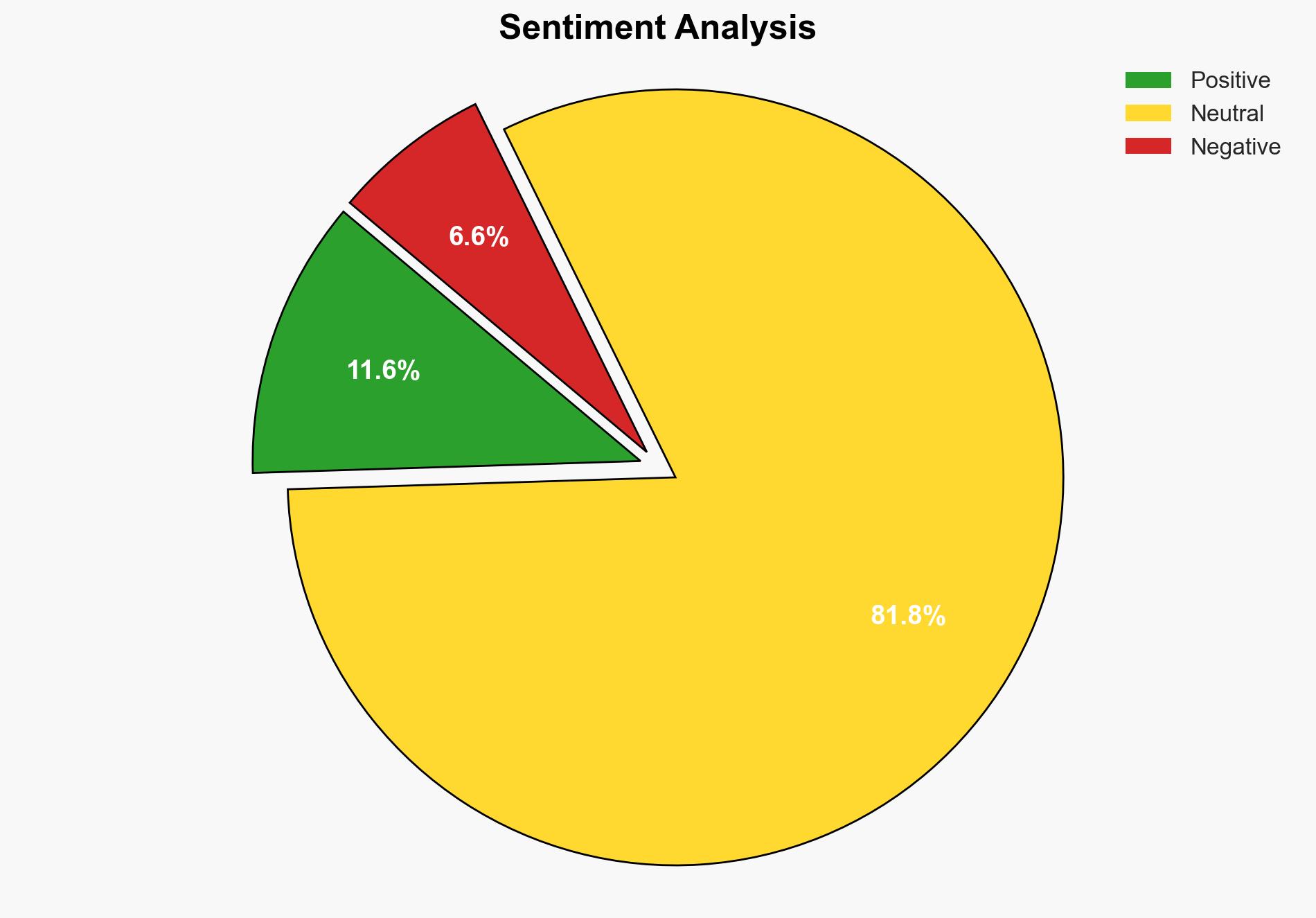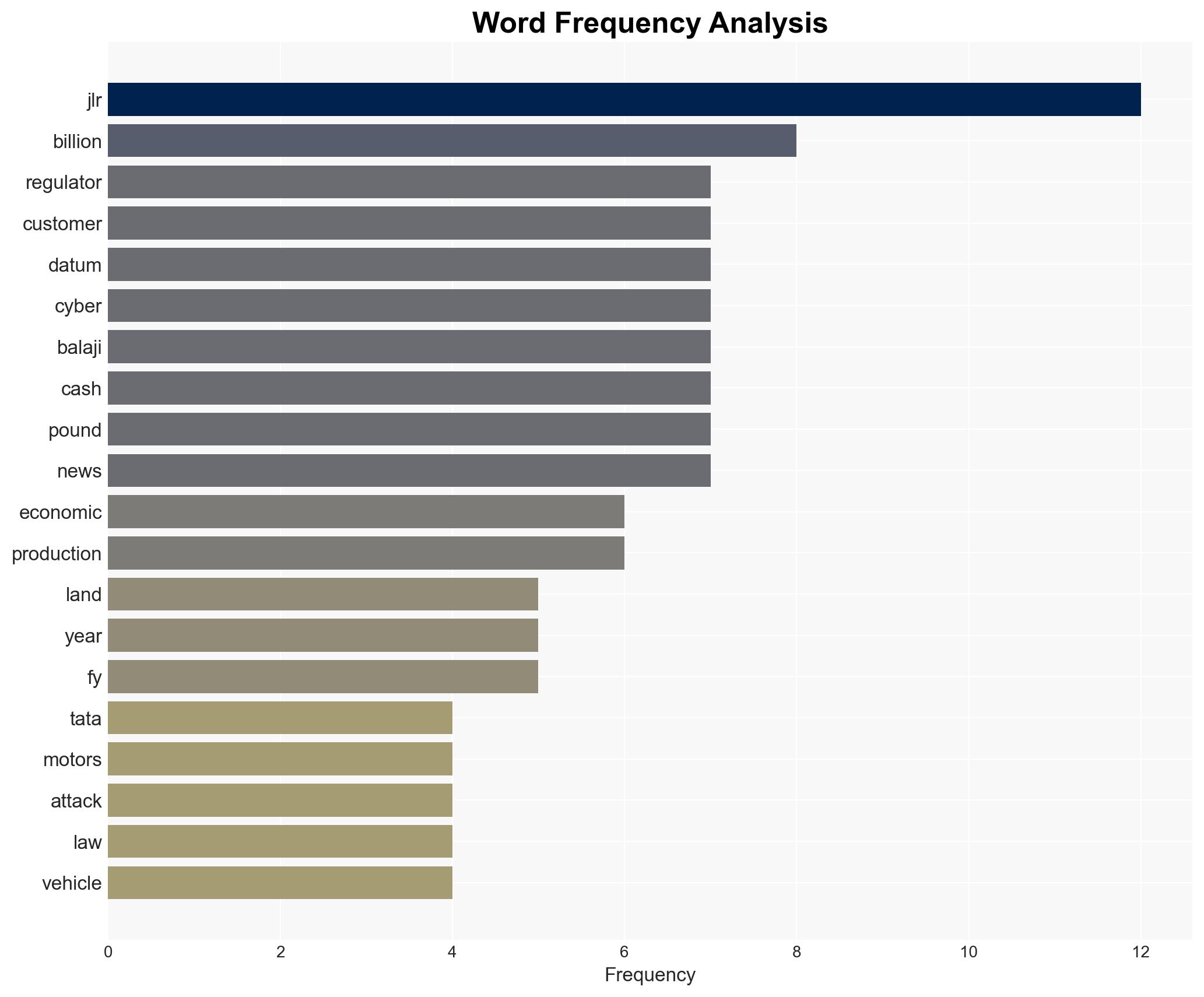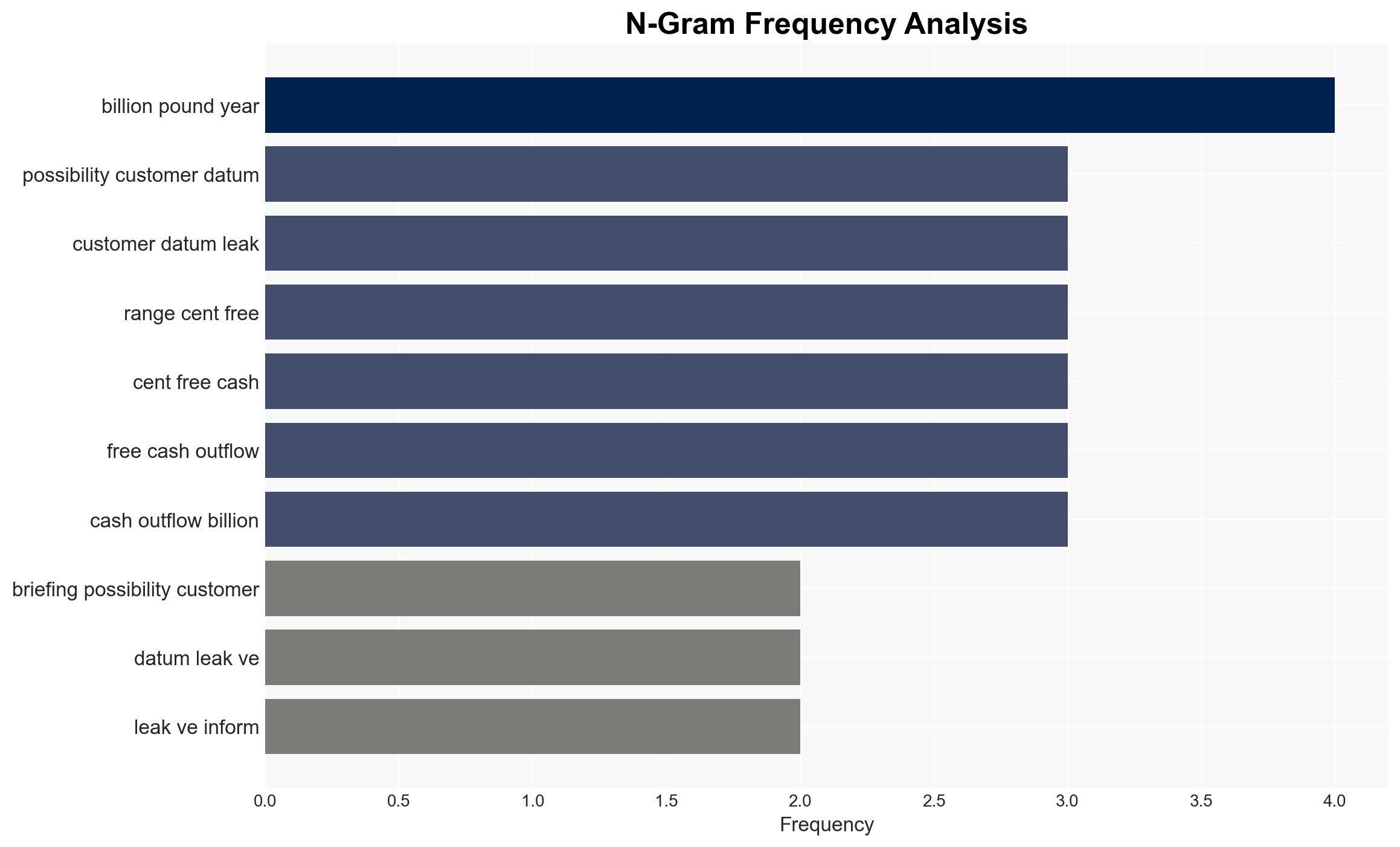Regulators informed about possibility of JLR customer data leak due to cyber attack Tata Motors – The Times of India
Published on: 2025-11-14
AI-powered OSINT brief from verified open sources. Automated NLP signal extraction with human verification. See our Methodology and Why WorldWideWatchers.
Intelligence Report: Regulators informed about possibility of JLR customer data leak due to cyber attack Tata Motors – The Times of India
1. BLUF (Bottom Line Up Front)
The strategic judgment is that the cyber attack on Jaguar Land Rover (JLR), a subsidiary of Tata Motors, poses a significant risk of customer data leakage, which could lead to legal and financial repercussions. The most supported hypothesis is that the attack was primarily aimed at disrupting operations and potentially exfiltrating sensitive customer data. The recommended action is to enhance cybersecurity measures, expedite the investigation, and maintain transparent communication with regulators and affected customers. Confidence level: Moderate.
2. Competing Hypotheses
Hypothesis 1: The primary objective of the cyber attack was to disrupt JLR’s manufacturing operations, with data leakage being a secondary consequence.
Hypothesis 2: The attack was primarily aimed at exfiltrating customer data, with operational disruption serving as a diversion.
Hypothesis 1 is more likely due to the immediate impact on manufacturing operations and the subsequent revision of financial guidance. However, the possibility of data exfiltration cannot be ruled out, necessitating thorough investigation.
3. Key Assumptions and Red Flags
Assumptions: It is assumed that the cyber attack was sophisticated enough to breach JLR’s security systems and that the attackers had the capability to access customer data.
Red Flags: The timing of the attack coinciding with JLR’s financial reporting period raises concerns about potential insider involvement or advanced planning by the attackers.
Deception Indicators: The lack of immediate evidence of data leakage could be a deliberate attempt by attackers to conceal their true objectives.
4. Implications and Strategic Risks
The potential data leak could lead to significant legal challenges and reputational damage for JLR and Tata Motors. Economically, the disruption in manufacturing and potential customer mistrust could affect sales and market position. Politically, increased scrutiny from regulators could result in stricter compliance requirements. Cyber threats may escalate if vulnerabilities are not addressed promptly.
5. Recommendations and Outlook
- Enhance cybersecurity infrastructure and conduct a comprehensive security audit.
- Maintain open communication with regulators and affected customers to manage reputational risks.
- Develop a crisis management plan to address potential legal and financial fallout.
- Best-case scenario: No customer data is leaked, and operations resume smoothly, with strengthened cybersecurity measures in place.
- Worst-case scenario: Significant customer data is leaked, leading to legal actions and substantial financial losses.
- Most-likely scenario: Partial data leakage is confirmed, resulting in moderate legal and reputational impacts, with operations gradually normalizing.
6. Key Individuals and Entities
PB Balaji, CFO of Tata Motors Group, is a key individual involved in managing the response to the cyber attack and communicating with regulators.
7. Thematic Tags
Regional Focus, Regional Focus: United Kingdom, India
Structured Analytic Techniques Applied
- Causal Layered Analysis (CLA): Analyze events across surface happenings, systems, worldviews, and myths.
- Cross-Impact Simulation: Model ripple effects across neighboring states, conflicts, or economic dependencies.
- Scenario Generation: Explore divergent futures under varying assumptions to identify plausible paths.
Explore more:
Regional Focus Briefs ·
Daily Summary ·
Support us
·





